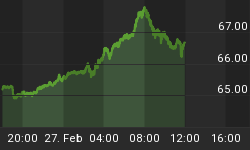As conflict, unrest and an evolving regulatory environment continue to disrupt crypto-mining operations, the miner migration continues, with the second-youngest country in the world the latest to see an exodus.
The government of Kosovo, which declared independence from Serbia in 2008, announced it is banning crypto mining indefinitely to deal with an energy crisis, high prices and blackouts.
Last month, the Southeast European state shut down its largest thermal power plant over a technical issue, and since then it has been importing electricity. It also announced a 60-day state of emergency to deal with the energy disruption.
Until recently, Kosovo boasted one of Europe's cheapest electricity rates, but now it is importing 40% of its consumed energy at high prices.
Even though bitcoin miners didn’t cause the recent energy crunch, they are the first to pay the price.
Amid a spike in demand for natural gas as European economies recover from the pandemic and fresh tensions with Russia (Europe’s main gas supplier), energy prices have soared across the continent.
In the case of Kosovo, which is dominated by ethnic Albanians, additional geopolitics are involved. Most of the bitcoin miners there are ethnic Serbs who are refusing to accept Kosovo as an independent state and still see it as an integral part of Serbia. As part of the revolt, the Serbian minority has not paid for electricity since 1999.
According to the Kosovo authorities and international media, police have carried out a series of raids in recent days, confiscating hundreds of high-tech devices used in cryptocurrency mining. Media also reported that miners are selling their equipment on the internet.
Still, Kosovo’s decision to ban mining will probably not drag down Bitcoin’s price and hashrate as was seen in the case of Kazakhstan and China.
According to the Cambridge Bitcoin Electricity Consumption Index, Kosovo’s average monthly hash rate share was only 0.01% in August 2021.
Concerned about the environmental impact of the practice and recent blackouts, other countries have cracked down on crypto mining.
Over the last year, China has waged a crackdown on bitcoin mining, culminating in a full ban in September that forced nearly 100,000-strong crypto mining ‘workforce’ to either give it up or move elsewhere.
Before the ban, at least 65% of global miners working on the bitcoin blockchain were based in China.
In July, when China imposed new rules on crypto currencies with the People’s Bank of China, local media reported that Chinese crypto miners had already started packing their bags, some selling their equipment or just transporting their machines to neighboring countries or even as far as to the United States.
Just until recently seen as a safe haven for miners fleeing China, Kazakhstan’s protests and internet blackouts earlier this month may prompt potential miners to pick more stable destinations instead–but cheap energy is a key attraction.
Following the China ban, more than one-quarter of all the crypto mining was being done in Kazakhstan and Iran alone.
Kazakhstan’s share was 18.1%, last year compared to the 1.4% before China's ban, second-largest center for bitcoin mining after the United States with 35.4% market share.
The Islamic Republic of Iran has also recently issued bans on crypto mining within its borders. Earlier this month, Iran placed a three-month ban on crypto mining in a bid to avoid winter electricity blackouts.
Even though 56% of the total energy consumed for Bitcoin mining last year came from sustainable power, up from 36% in 2020, the total electricity used for Bitcoin mining worldwide is 135.11 terawatt-hour of electricity per year right now.
That is more than the annual energy consumption of countries like Finland or Argentina.
















